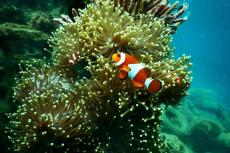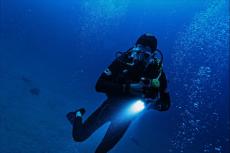A Commentary on Science
Earlier this year, National Geographic featured an article entitled “The War on Science,” which questions why many scientific claims face a storm of opposition from the public. It explains that these criticisms result from a tendency to believe in one's religious or political position, rather than in the facts, which is a recent finding by Dan Kahan of Yale University.
The problems with modern science which might contribute to this public attitude were not examined. The sole explanation offered, was that people entertaining such doubts are lacking in the correct powers of reasoning because they fail to apply the scientific method.
When one looks out across the ravaged earth, National Geographic's statement “Modern science is based on things it got right,” appears in a different light. In addition to widespread pollution and the destabilization of the climate, human activity has caused the sixth mass extinction, the tropical forests needed to support the life-giving atmosphere are devastated, and the oceans are showing signs of ecological collapse.
Why, at the height of science's glory, has it had such a destructive effect on the planet upon which we all depend? Why has it offered no guidance to humanity, as civilization expanded, in controlling international events, or finding practical solutions to such serious developments as the threats of nuclear annihilation, and human population growth, which have resulted in dire global problems?
Materialism
One important reason is that for a material science in a material world, money has been a decisive factor in determining the direction taken by scientific research.
Science began with the work of Aristotle, in an effort to systematically analyse our surroundings—the lines, the curves, the way a stone would fall. It was a quest for understanding of the environment in which we find ourselves, and through observation, measurement, and reflection, a detailed map of reality and its mathematical underpinnings, came into being over the centuries. The edifice of science was built step by step, as facts that could be mutually verified, accumulated through pure research done in the quest for knowledge.
Then came the unholy marriage with industry. Instead of studying life, biology focused on using the biosphere to solve human problems, and it neglected an appropriate analysis of nature. The play of life across the planet, how it interacted with the atmosphere, the seas, earth, rivers, and the falling of rain, was simply ignored.
The result was that western society developed without reference to its environment, and the current state of discontinuity between 'science' and the facts is the result.
The influence of religion
The assumption of human domination over Earth is a religious one which science adopted centuries ago. The human was considered superior—the only one (!) made “in the image of God”—while the rest of the universe, including all other forms of life, did not share the human gift of consciousness, and were considered mechanical in nature. This convenient idea, attributed to Rene Descartes, has well served a civilization that regards our planet as nothing more than a resource.
But in ignoring the uniformity of life, it took a dramatic departure from evidence-based science. Human beliefs began to be considered more important than the facts while, in ignoring our biological heritage, philosophical science imbued our leaders with the sort of arrogant pride which not only comes before, but causes, a fall.
In science, the only rational position to take is the acceptance of reality.
The uniformity of life
We are surrounded by evidence of the uniformity of life. Not only do all vertebrate animals share the same body plan, but on the microscopic level, our cells, from bacteria to plants to man, have the same make-up. Genetic studies, too, confirm that from primates (99%) to fish (85%) a high fraction of genes are shared among us.
The pet phenomenon, which has been visible to all for centuries, would be impossible if animals truly were mechanical, because by definition, a machine cannot act “as if” it can think and feel. A commonly used excuse for treating animals cruelly is the statement, “Just because they act like they feel pain, does not mean that they really do.” This preposterous argument requires that the alleged machine imitate consciousness on cue.
Every time it has been examined, evidence of sentience has been found in animals from insects, to sharks, fish, and elephants. Even one-celled animals, lacking both brains and nerves, are able to learn and remember.
There is every reason to question the prevailing negative attitude to animals, and its origin. There is simply no evidence to support the idea that life as it arose in this solar system, is inferior and unworthy as traditional science maintains.
Quite the contrary. Given current knowledge of the size and nature of the universe, and the mysteries concerning the presence of life and of consciousness, there is every reason to consider it remarkable.
People studying wildlife behaviour, as I do, have to be meticulously careful that all conclusions are objective, and uninfluenced by one's perspective as a human. So it is disappointing to see this essential basis for maintaining scientific integrity being ignored by so many scientists. Yet, this consistently anthropocentric attitude goes unquestioned, while they stand in the way of the search for the true understanding of life.
Human behaviour as part of the continuum of life
Human behaviour is considered to be dependent on reason and cultural tradition alone, yet this approach has failed to produce any insight into the current state of human affairs, or ways to avoid disaster in the future.
However, when looked at as part of the continuum of the behaviour of all living beings, the comportment of the human species fits like a piece in a puzzle. Universal trends are evident in animal behaviour, and of these a great deal has been learned. But the information has been ignored, due to the denial of the link between humankind and the rest of nature.
The male/female phenomenon, for example, has framed sexual reproduction for at least half a billion years. Myriad examples of how the two genders work together provide a comprehensive understanding of their interconnected roles, which could greatly relieve the difficulties people face in understanding the opposite sex in the modern world. Similarly, millions suffering under the stigma of homosexuality, would have been greatly relieved to know that love between members of the same sex is natural, right, and good. (note 1)
Monkey trickery on the scale of the modern human appears truly diabolical. There are many cases in which evidence points to huge deceptions, but they remain uninvestigated due to the territorial command to follow your leader. (note 2)
War is waged by animals from ants, through rats and chickens, to primates. It results from the aggression territorial animals feel toward those on the other side of the border. The territorial instinct evolved to assure the best distribution of animals of each species through their environment, and each territory has two vital places: the nest with all of its treasures, and the border where intruders are repelled. Thus, a conflictual attitude to 'others', be they other tribes, city states, or nations, races, religions, or sports teams, is built into our genes, just as a genetically based love of sugar and fat is evident among us.
This explains why violence is so widespread in our society, whether hidden in families, criminalized in communities, or expressed internationally in wars. The continuing clash between religion and science, which was show-cased by National Geographic's article, is an example of the tendency to attack those with different beliefs, and serves as a daunting reminder that even our brightest lights are no more capable of managing their aggressive inclinations than animals.
Some primate, including human, societies live in a constant state of war with the surrounding tribes, and our history is an account of wars. It is easy to see how the clans whose warriors could not keep up with the continuous demand for violent responses, would simply have disappeared, resulting in an increasingly militant population.
Ethologist Konrad Lorenz wrote :
“Unreasoning and unreasonable human nature causes two nations to compete, though no economic necessity compels them to do so; it induces two political parties or religions with amazingly similar programmes of salvation to fight each other bitterly and it impels an Alexander or a Napoleon to sacrifice millions of lives in his attempt to unite the world under his sceptre. We have been taught to regard some of the persons who have committed these and similar absurdities with respect, even as ‘great’ men, we are wont to yield to the political wisdom of those in charge, and we are all so accustomed to these phenomena that most of us fail to realize how abjectly stupid and undesirable the historical mass behaviour of humanity actually is.” (note 3)
In a world in which the current alpha males have science fiction weapons to use in their dreams of world dominion, there is every reason to consider this type of instinctive aggression as the greatest of all dangers. Yet, in an astounding display of denial, science supports the continuing efforts to create ever more destructive weapons, and the news as I write today is full of flagrant attempts by those in power to arouse everyone to militant enthusiasm for yet more war!
Accepting the truth
Insight into how to control the forces of nature has always resulted from the understanding gained through investigation of their natural causes. Were our true inclinations accepted as natural, providing alternate outlets for our aggression could become part of our culture until the brute force method fell out of favour.
Recognition that borders remain in about the same place in spite of wars, could result in a mutual decision to simply respect the ones we have now, and enjoy competing in other ways. Militant enthusiasm can be raised in young people for plenty of other challenges, including science, art, and sports, causes considered worthy by all human beings.
The bonds of love and friendship that join individuals together, work like magic to defuse the hackle-raising communal defense instinct evolved by our pre-human ancestors, and an awareness of them has the power to change the world. The greatest danger is the instinctive tendency to regard those who speak or look differently, as inferior. Recognizing that this inclination is common to us all, as people growing up in different areas of the world, and that in spite of cultural differences we all share similar interests in life, makes it easy to find reasons to like those who are different from us.
Individuals communicating with and befriending others in a spirit of brotherhood could, given the power of the Internet, swiftly connect the people of the world in friendship, which would go far toward defusing international hostilities. A day could come in which they might tell their leaders, when summoned to slaughter their friends, “We the people, have met on the Internet, and we like each other. So please, just let us live.”
In time, adequate knowledge of ourselves would determine the directions to take to avoid the dangers implicit in our ignorance of the nature of aggression.
Other thinkers have written of an “awakening” that might come about to save the world, as human destruction threatens the planet. Indeed, we may be the first life form to gain understanding of the difference between instinct and the wiser choices that are possible through using the intellect.
Perhaps that is final test of the human spirit—that we gain the courage to manage our own biological heritage and remake our world using wisdom and understanding instead.
(c) Ila France Porcher
Thanks to Peter Symes for accepting this somewhat off-topic article on the X-ray site. Yet, it has been through my writing for sharks that I approached and then came to terms with the subjects discussed in this article. When I first started trying to learn more about the sharks I was studying in Tahiti, everything I found about them was wrong because it came from fishing sources, even their sizes, and one would expect that at least fishermen would get that right, since they had the dead animals there to measure. In the years since, as I have published scientific articles, and written books on shark behaviour I have realized the extent to which shark science is inseparable from fisheries. To this day, tagging sharks remains the primary way of studying them, and my seven year ethological study of reef sharks in the wild, has never been duplicated.
Notes
1) Homosexuality is widespread in nature, but because it runs counter to Christian beliefs about the purpose of love and sex, this has not become widely known. There is a BBC documentary which serves as a review of this subject on youtube at : https://www.youtube.com/watch?
2) Bob Altemeyer, The Authoritarians 2006. Humans have a tendency to follow a leader, to the degree of giving up the guidance of their own conscience. In a famous experiment, he found that you only need to ask three or four people before finding someone who is willing to hold another person down and shock him to death, if you present yourself as an authority.
3) From Konrad Lorenz's book On Aggression, written in 1966 as an overview of aggressive behaviour, and a warning to humanity. His choice of the species closest to humans in behaviour was the rat; at that time he considered that humans had about the same chances as several hostile clans of rats on a ship that was almost out of food. My advisor with the sharks, Professor Arthur A. Myrberg Jr., had worked with him, and we both felt that his ideas were in accordance with what we too had observed.
My choice for a comparable species, based on my own experiences is the junglefowl--the ancestor of modern chickens, a species more affectionate and loving than the rat, as well as expressing most dramatically the single-minded determination to fight to gain power, that one sees among humans. These highly territorial birds will also wage war, on a modest scale, with the alpha male using the younger beta males as warriors. Thus he avoids being hurt himself, and rids himself of future competition. With them, too, the borders remain in about the same place.
- Log in to post comments





















